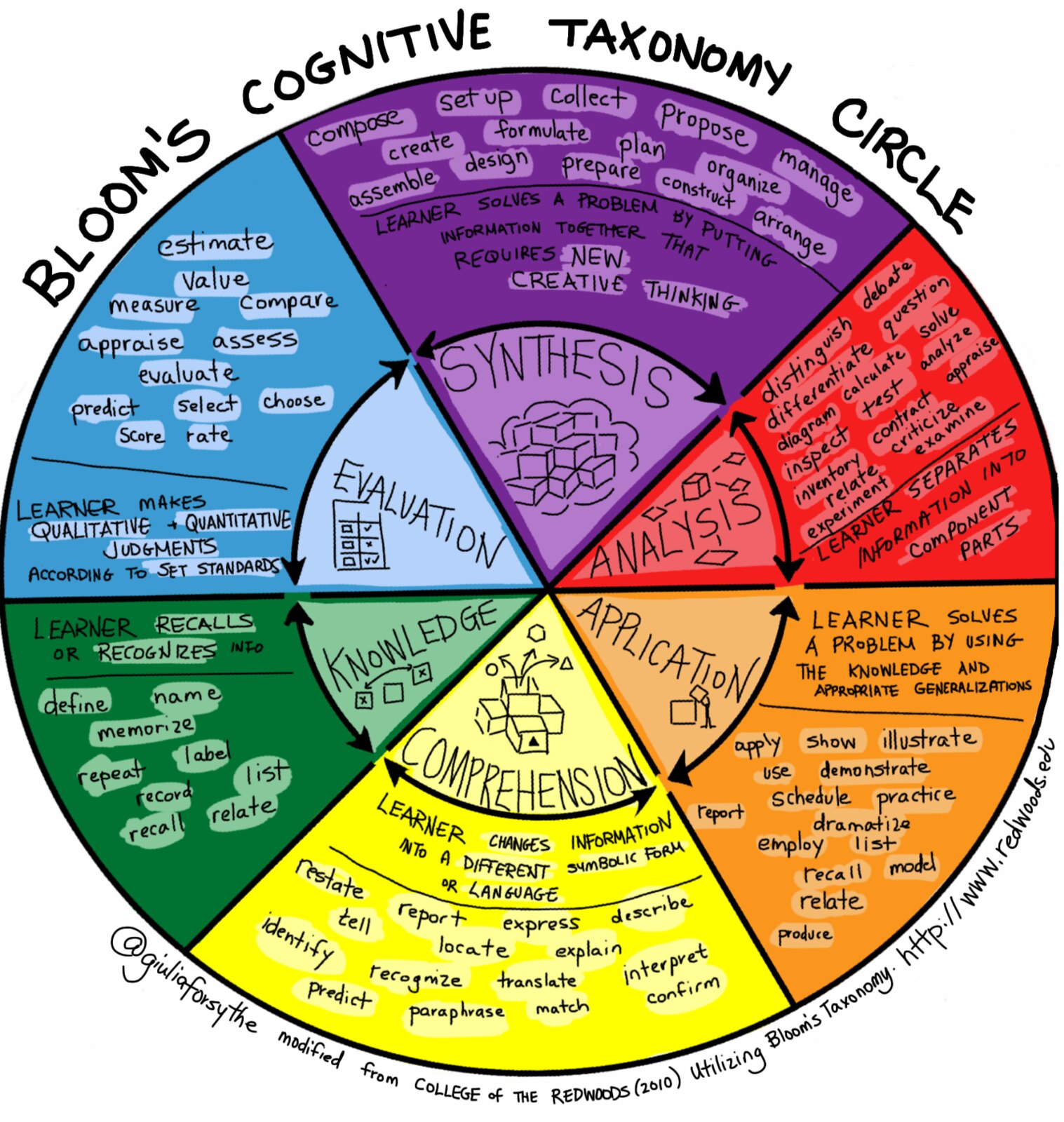Albert Einstein said, “The important thing is not to stop questioning.” Although tutors answer questions that a writer may ask about their writing, we should consider the questions we ask writers.

Writing tutors know how frequently we receive requests for help on grammar and style guides. Answering the concerns of our writers is important, but how do we help writers go beyond localized issues? My answer lies in developing a consciousness of the types of questions tutors ask in sessions.
Managing the time of an appointment is essential to a successful appointment, thus finding the appropriate questions to ask can go a long way to maximizing efficiency and assisting writers. Questions that are not relevant to the specific needs of a writer and their work will leave the tutor and writer unsatisfied.
In general, there is a hierarchy to the kinds of questions one can ask. Some questions are factual, which tutors ask to inform themselves about the context the writer is writing in. Such questions also confirm that the writer is knowledgeable about the subject. Another type of question is evaluative. Tutors often ask these questions to see how the writer feels about the writing, or whether their writing communicates with validity (e.g. Is your evidence to support your claim valid? Why or why not?).
To clarify, I do not think tutors should interrogate their writers. In other words, an appointment needs to be conversational, not a one-way exchange. Helping a writer does not mean pressuring them with a deluge of intense questions. We still need to be personable and affable so writers are comfortable in their meetings with us.

One rather useful organization of questions is Bloom’s Taxonomy of Cognitive Processes. Depending on where in the taxonomy a question is, it is more likely to promote higher or lower levels of critical thinking.

Essentially, if a writer can apply evaluation, synthesis, or analysis, they possess the knowledge, comprehension, and the ability to apply what they know. Analysis and synthesis are key in our appointments: we challenge writers to examine their writing, as well as arrange their work in more creative and effective ways. Using Bloom’s Taxonomy, here are a few example of higher-order questions.
Could you evaluate how your paragraph relates to your thesis statement?
Why did you organize your ideas in this way?
How would you examine this topic from the opposing point of view? How does that apply to your argument?
These are generalized examples, but applicable to a diverse set of situations.
So how do tutors find appropriate moments to redirect the writer with critical questions? We do not want to derail the writer if their focus is on a certain theme or topic of their writing. It is more valuable to ask evaluating, analytic and other questions during lulls of conversation or when the writer is curious about what the tutor thinks.
I recommend that you familiarize yourself with the various categories of questions, so that you have a sizable “toolbox” for any given situation. Part of the challenge and learning process of becoming a better tutor is understanding what techniques should be utilized. So go out, ask questions and be curious! You can find several links in this sentence to assist you.
Discover more from UCWbLing
Subscribe to get the latest posts sent to your email.


One reply on “Critical Questions in Tutoring Sessions”
This was such a great post, so thank you so much Donovan!
I especially enjoyed the color wheel graphic that helped explain the different kinds of questions and the different questions you can use to test these areas.